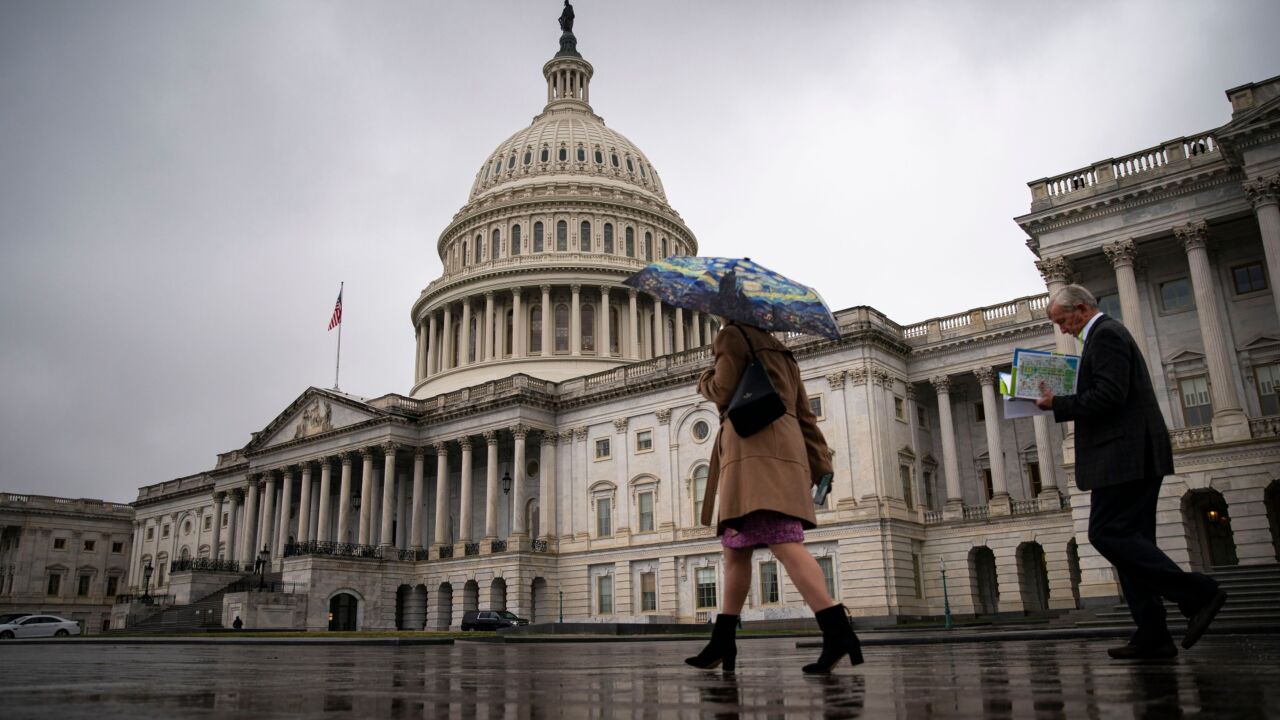Cyber security
Cyber security
-
The bill, part of the omnibus spending package, would force banks and other critical infrastructure providers to tell the government right away when they’ve been breached.
March 11 -
Infrastructure will command most of lawmakers’ attention, but expect banks to keep pushing for bills that would ease the transition away from a key benchmark rate and help them serve legal cannabis businesses.
August 24 - LIBOR
Federal Reserve Chairman Jerome Powell told senators that the central bank is willing to explore a credit-sensitive interest benchmark in addition to the secured overnight financing rate, which some banks say could cause problems during economic stress.
February 12 -
The agency’s semiannual report warned institutions to be mindful of operational risks from the innovation in core banking systems, and detailed supervisory steps to monitor the adoption of a new reference rate.
December 9 -
A report from the Financial Stability Oversight Council cited a bigger share of originations and servicing by nonbanks as a potential vulnerability in the financial system.
December 4 -
Members of the House Financial Services Committee cited leveraged lending, cybersecurity and the switch to a new interest rate benchmark among potential systemic risks that keep them up at night.
September 25 -
A bill by Rep. Patrick McHenry, R-N.C., would give the CFPB authority to oversee cybersecurity efforts at the credit bureaus.
July 19 -
The agency's vote Thursday threatens to block many of the industry's communications with customers, though banks did win one concession.
June 6 -
The watchdog’s report — requested by Sen. Elizabeth Warren, D-Mass., and Rep. Elijah Cummings, D-Md. — called for civil money penalty authority and better supervision to guard consumer data.
March 26 -
The 2020 budget would add the Consumer Financial Protection Bureau and FSOC to congressional appropriations, charge lenders for FHA upgrades and require universities to have skin in the game on student loans.
March 11 -
“We have actually discouraged banks from innovating,” FDIC Chairman Jelena McWilliams said in announcing a move that other agencies have made.
October 23 -
The Trump administration is making more than 80 recommendations to encourage financial innovation within a regulated space, including endorsing the creation of a federal fintech charter.
July 31 -
Credit reporting firms with significant operations in New York will face new cybersecurity and registration requirements to stave off concerns related to a breach of Equifax's systems last year.
June 25 -
The agency’s acting director uses a reply letter to the senator not to answer her questions but to underscore that Congress lacks the ability to compel answers to such questions.
April 5 -
Sen. Elizabeth Warren released a scathing report Wednesday on Equifax's handling of the data breach last year, part of an effort to gain backing for legislation to rein in the credit bureaus.
February 7 -
The two senators are set to introduce a bill that would force such firms to pay $100 per customer whose personal information was compromised.
January 10 -
Calls for less reliance on credit bureaus and Social Security numbers for verification are leading many to envision a future of identity on a distributed ledger.
October 30 -
CFPB Director Richard Cordray is using the Equifax breach to suggest the CFPB be given power to examine credit reporting agencies for potential cybersecurity lapses.
October 10 -
Richard Smith came to Capitol Hill this week to speak about the massive breach at Equifax, but it was clear Tuesday that he will be defending the entire credit reporting industry.
October 3 -
The Equifax breach has millions of Americans now thinking about freezing their credit to guard against identity theft. But those who act could be cutting themselves off from the nation's vast credit economy.
September 19



















